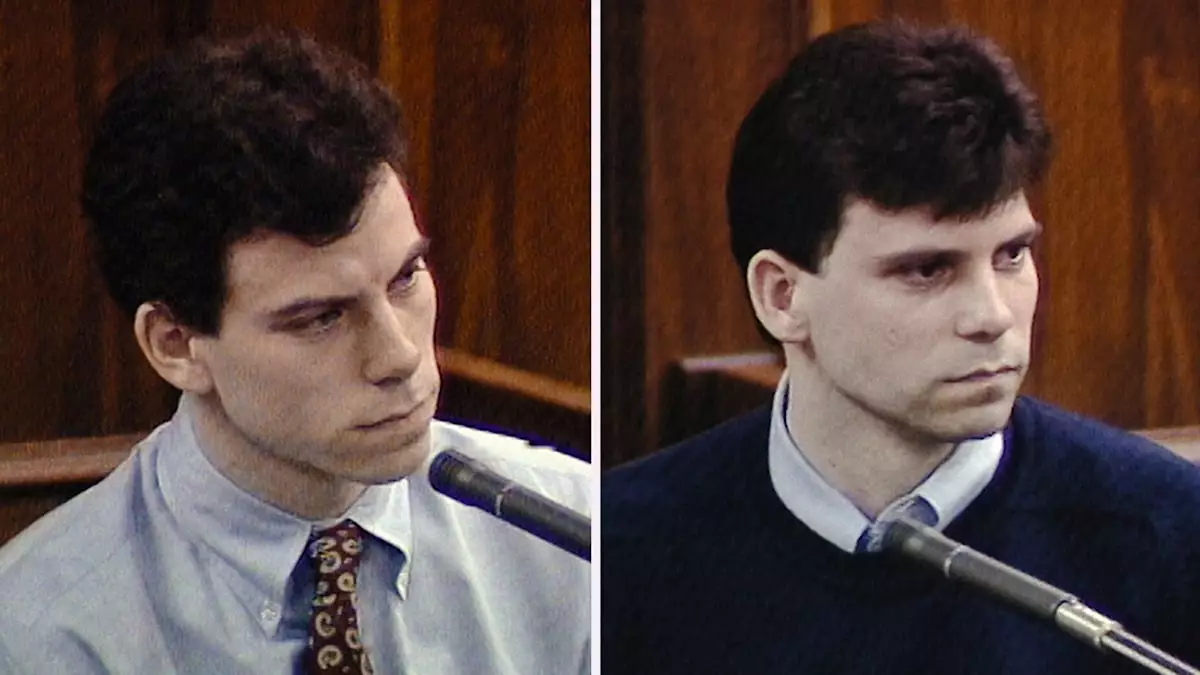The narrative surrounding Lyle and Erik Menendez has become more than just a sensationalized story of crime; it has transformed into a poignant discourse about family, trauma, and the long-term consequences of violence. It has been over three decades since the tragic murders of José and Kitty Menendez, yet their sons are still making headlines as their family advocates for their release. The Menendez brothers, who were sentenced to life without parole, now find renewed hope amid evolving societal perspectives on justice and mental health.
The resurfacing of interest in their case, propelled by documentary series and films, has prompted a reassessment not only of the events that transpired on that August day in 1989 but also of the broader implications of the justice system’s treatment of individuals who have experienced profound trauma. Central to this evolving narrative is the idea that the Menendez brothers were also victims—of abuse, of a system that often disregards mental health, and of a culture ill-prepared to address such complex issues.
Recently, at a press conference in Los Angeles, around twenty family members gathered to publicly advocate for the brothers’ release. Among them was Ana María Beralt, niece of José Menendez, who delivered a heartfelt statement highlighting the dual victimization of the Menendez brothers. She articulated a compelling argument that many today would resonate with: that Lyle and Erik are not the cold-blooded killers they were once labeled as, but rather survivors of an abusive environment that left irreversible scars—both physical and psychological.
Ana expressed the overwhelming grief that has enveloped her family for years, but she also emphasized the importance of recognizing the ongoing suffering of her cousins. With a sense of urgency, she stated, “If Lyle and Erik’s case were heard today, with the understanding we now have about abuse and PTSD, there is no doubt in my mind that their sentencing would have been very different.” This plea underscores the shifting paradigms in mental health awareness and legal responsibility that have developed over recent years, fostering a climate where the complexities of trauma can no longer be overlooked.
Legal Challenges and New Evidence
Lyle and Erik’s legal counsel, Mark Geragos, unveiled a habeas corpus claim— a legal petition aimed at reassessing the lawfulness of their imprisonment based on new evidence. This development is crucial. For many, the Menendez case represents a tragic intersection of family dynamics and systemic failures. The very foundation of their conviction has been challenged as society has begun to acknowledge the profound impact of childhood trauma.
In her speech, Ana María called for the recognition of the injustices suffered by the brothers, stating that “their continued incarceration serves no rehabilitative purpose.” The memorandum of support from law enforcement officials, expressing their belief in the brothers’ transformation during incarceration, adds weight to the argument for a fair reevaluation of their case.
Furthermore, as Ana pointed out, the brothers’ resilience during this long ordeal has positioned them as advocates for others struggling with similar issues. They have reportedly spent their time in prison supporting fellow inmates, showcasing growth and a commitment to making amends, albeit in a confined space.
The Menendez family’s recent public display of unity illustrates a fresh bond built on hope and compassion—a stark contrast to the division that characterized their initial years of turmoil. As they call for action from the district attorney’s office, they are asking not just for the release of Lyle and Erik, but for an acknowledgment of the intricate web of familial relationships that suffered in the wake of a tragedy.
Ana María eloquently summarized this sense of hope by stating, “We are here… hoping that with the reexamination of their case, a new outcome will be reached.” Such a statement resonates on multiple levels, not just within the Menendez family but also within a society that is grappling with how to deal with cases involving trauma and violence.
As the Menendez brothers await the potential for resentencing, their story reminds us that the complexities of human experiences should not only evoke judgment but also understanding. While they grapple with the legacy of their actions, it is crucial that society also considers the circumstances that led to those actions and the possibility of redemption for those who have been deeply impacted by trauma.
